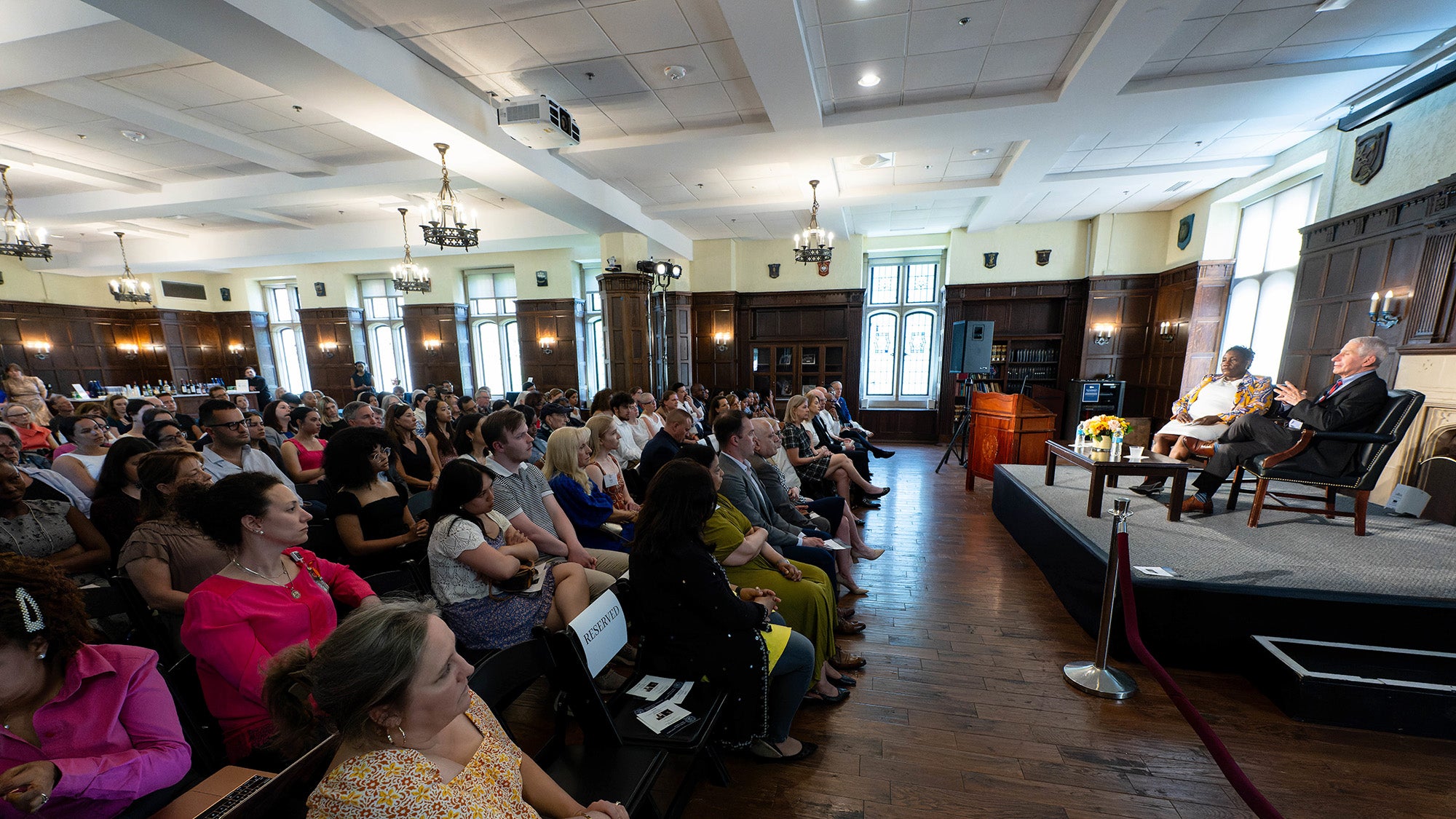Waite and Fauci Discuss Health Inequities and Disparities, Burnout and Well-being
(May 15, 2024) — Roberta Waite, EdD, RN, dean of the School of Nursing, and Anthony Fauci, MD, a Georgetown distinguished university professor in the School of Medicine and the McCourt School of Public Policy, sat side by side recently for a wide-ranging discussion to launch National Nurses Week.
More than 1,500 students, alumni, faculty and staff registered for the May 2 conversation, titled “Equity & Well-being: The Delivery of Health Care,” with more than 100 attendees joining in person at Copley Hall and the remainder participating virtually via Zoom.
Workforce Diversity
Before touching on topics including health care worker burnout and the societal impact of COVID-19, Fauci spoke about the importance of diversity in the health care workforce, explaining that patients are more likely to trust their health care providers when they look like the community they serve.
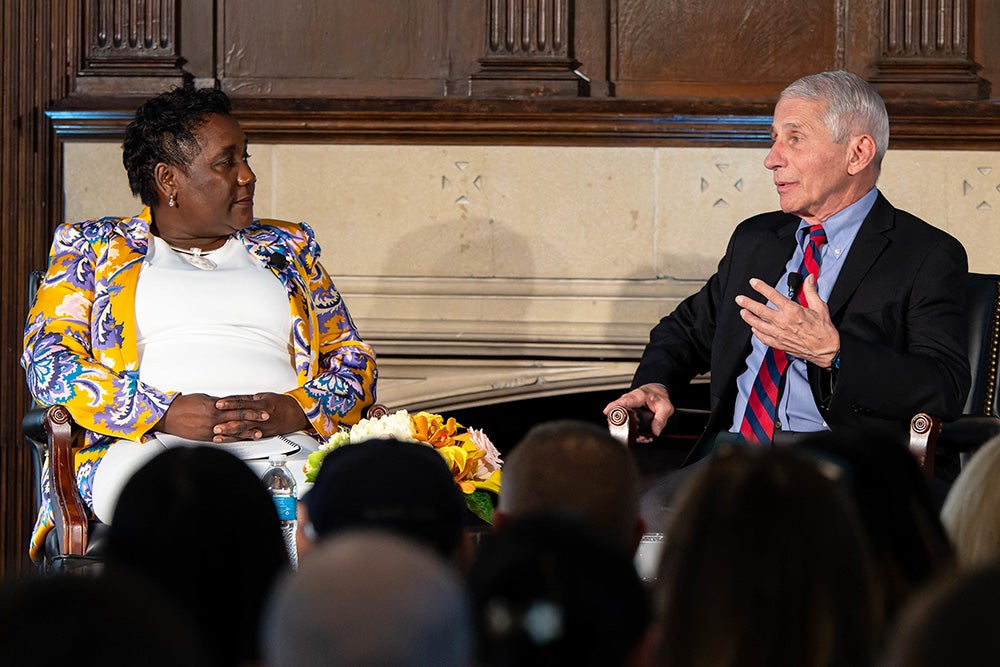
Roberta Waite, EdD, RN, and Anthony Fauci, MD
“The confidence that the community has in the health care system is directly related to if the health care system is representative of who they are, where they came from, the experiences they’ve had,” Fauci said.
“If there’s no role models there to begin with, you’re not going to have people feeling comfortably entering that particular vein,” he added. “And we see that continually in every aspect of health care.”
The COVID-19 pandemic amplified existing health disparities, particularly among African Americans.
“The problem that we’re all facing is that you can more easily correct the defect of accessibility by putting a lot of effort … to bring people into the health care system,” Fauci said.
Addressing social determinants of health, however, is an imperative aspect of improving health equity.
“We’ve got to tear down … the root cause of those social determinants of health, which people are very reluctant to say that because it’s really stemmed back to our history of racism that goes back centuries, which then leads into discrimination,” he said. “And if we don’t admit that that’s the case, we’re never going to get to solving the root problem.”
Sustainability of Stress
In his previous role as director of the National Institute of Allergy and Infectious Diseases for nearly 40 years, Fauci managed multiple infectious disease outbreaks, including the HIV/AIDS crisis starting in the 1980s, prompting Waite to ask Fauci what is different about the burnout that health care workers are experiencing today.
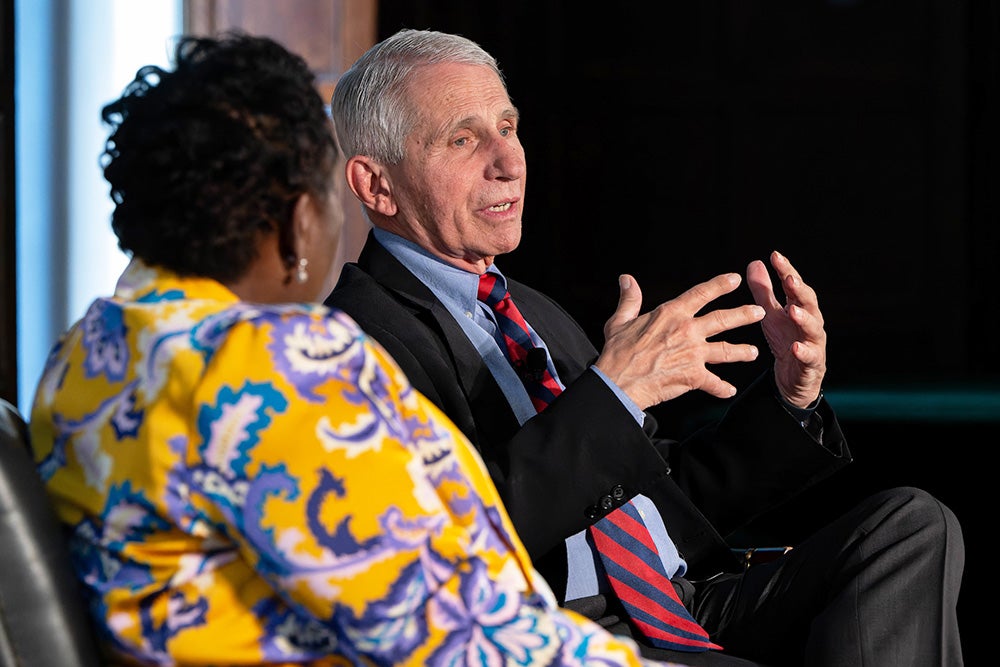
Fauci compared the stress of the HIV/AIDS crisis with that of the COVID pandemic.
“Well, it’s the sustainability of the stress,” he said. “The problem with COVID is that the stress that was put on the health care providers was continual, constant and unremitting.”
Health care workers experience burnout because of their compassion for their patients, Fauci added.
“When you are a committed health care provider and you’re dealing with patients that are lying in the hallway because there are no beds for them, you’re not going to go home and walk your dog,” he said. “You’re going to stay in the hospital and you’re going to take care of them. And that really became the source of understandable burnout.”
Despite the trauma of losing more than 1 million people who died from the disease in the U.S., Fauci responded with confidence about Americans’ resilience when Waite asked him to reflect on the pandemic’s social and psychological impact. However, he acknowledged that school-aged children faced more serious long-term challenges to their mental health and education.
“We’ve got to appreciate that and we’ve got to make allowances for that,” he said. “We’ve got to make allowances for that in the educational loss and the psychological loss. So we’ve got to be aware we have mental health issues that we’re going to be dealing with for the next several years.”
Waite expressed the need for better mental health care during a crisis to help workers process trauma and grief, a statement with which Fauci concurred.
“And that means that you’ve got to be able to, on the spot, provide the kind of support in real time and not wait after the fact,” he said. “And I think that’s the lesson that we learned.”
Work-life Balance
Fauci described working nonstop during the first part of 2020 as the pandemic gripped the world. He credited his wife, Christine Grady (N’74, G’93), a nurse and Georgetown alumna, for providing the support he needed, noting that everyone needs a support system.
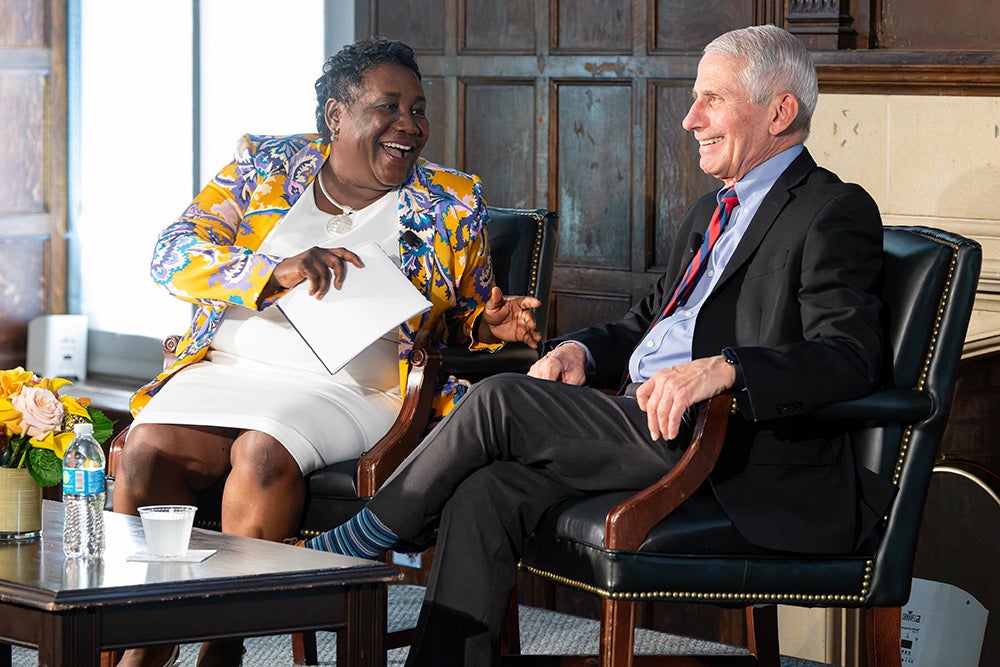
“I am not the poster child for work-life balance,” Fauci quipped.
“So she’s incredible in understanding the stress that I went through, particularly during the early years of HIV and very particularly during the first several months of COVID because in January, February and March 2020, I was implementing my somewhat antiquated ‘suck-it-up’ theory,” Fauci said.
“I am not the poster child for work-life balance,” he added, triggering laughter from the audience.
Core Values
Waite concluded the conversation with a focus on values.
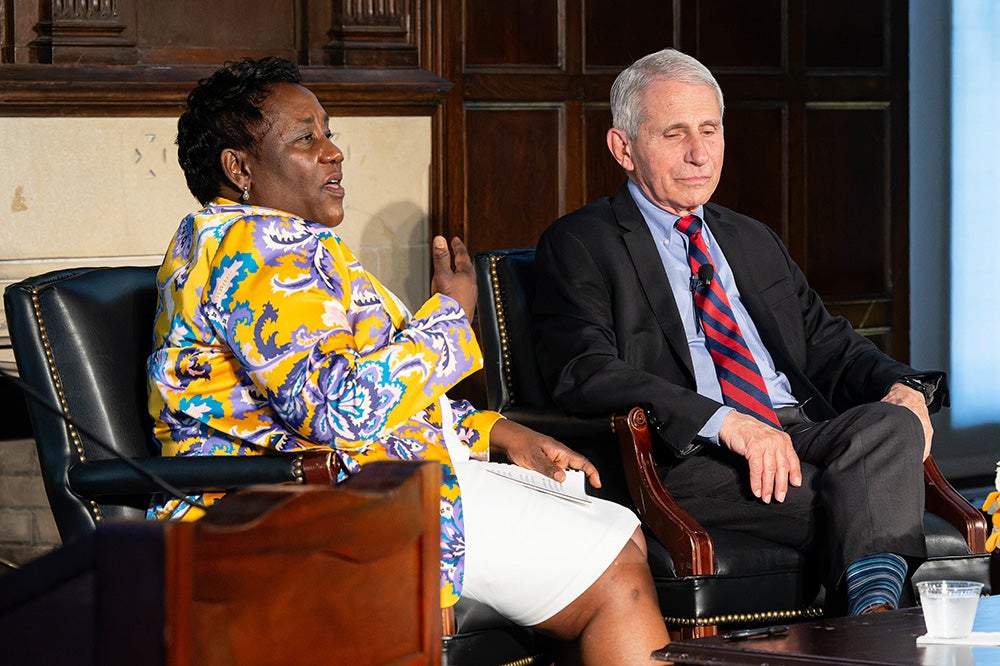
Waite turned the conversation to the topic of values.
“Our Jesuit values are core in everything that we do: education, practice, research … how we judge situations, behave, see, manage challenges,” she said.
Fauci agreed, and commented that many of the challenges he faced not only involved many deaths from disease, but involved situations that were politically charged.
“It goes back to the principles of commitment, of integrity, of honesty and of energy to do the right thing,” he said. “So when you have the hard times that we’ve gone through, particularly in my own career because I’ve dealt with six or seven major infectious diseases, outbreaks that were all politically charged, some more than others, you have to get back to your core principles and you have to stick by them, because if you veer away from them, you become inconsistent.”
This event was sponsored in part by AMN Healthcare.


